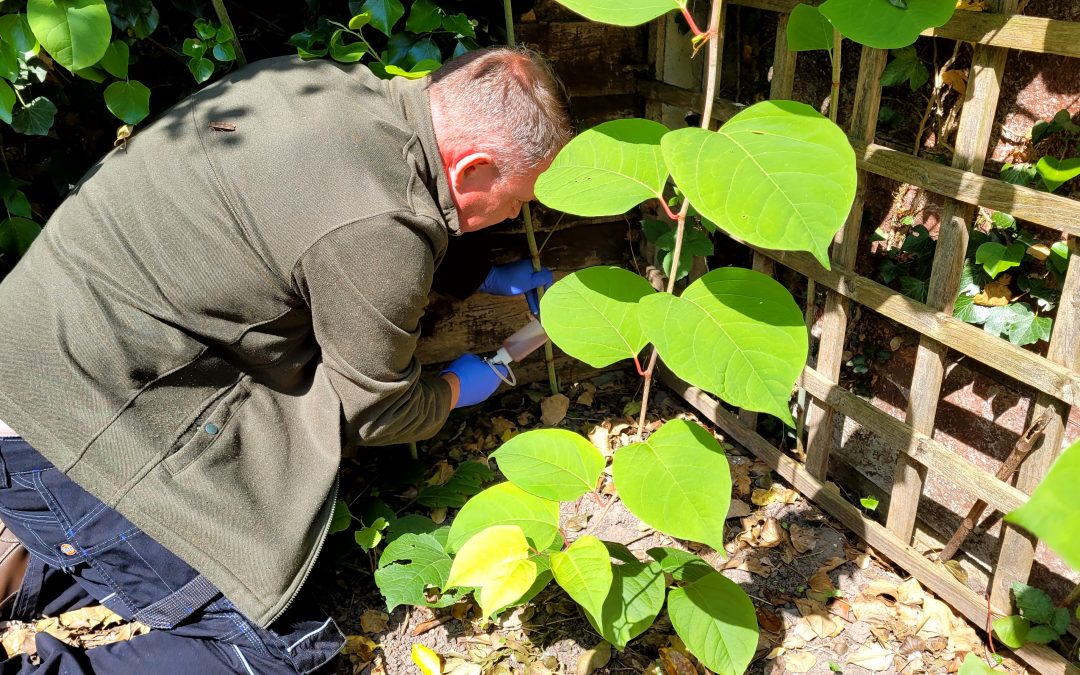How do I disclose to buyers[2024]
Disclosing the presence of Japanese knotweed to potential buyers is essential
You must be transparent and compliant with legal requirements. Here are some steps you can take to disclose the information correctly:
1. Honesty and Transparency: It’s essential to be upfront about the presence of Japanese knotweed. Disclosing this information can lead to legal complications later, as it’s considered a material fact in real estate transactions.
2. Include in Property Information Form: In many regions, a specific form (often known as a TA6 form in the UK) is part of the property transaction process. This form includes a direct question about the presence of Japanese knotweed. You should answer this question truthfully.
3. Provide Detailed Information: Along with acknowledging its presence, provide detailed information about the Japanese knotweed. This should include its location on the property, the extent of the infestation, and any measures taken to control or eradicate it.
4. Evidence of Professional Assessment or Treatment: Include these reports in the disclosure if you have had a professional assessment or treatment. This can reassure buyers that the issue is being managed professionally.
5. Legal Advice: Consider seeking legal advice to ensure your disclosure is adequate and compliant with local laws and regulations.
6. Communicate with Estate Agents: Ensure that any estate agents involved in the sale are fully aware of the situation so they can inform potential buyers appropriately.
7. Update on Progress: If you are in the process of treating the Japanese knotweed, keep potential buyers updated on the progress and any changes in the situation.
By following these steps:
You can ensure that you are fulfilling your legal and ethical obligations when selling a property affected by Japanese knotweed. Transparency not only protects you from potential future disputes but also maintains trust in the buyer-seller relationship.
Remember, failing to disclose the presence of Japanese knotweed could lead to legal issues and disputes with buyers after the sale. Being upfront and transparent about the problem is the best approach to ensure a smooth and ethical property transaction.
Contacting a specialist like Stephen at Japanese Knotweed Plus Limited can be beneficial if dealing with a Japanese knotweed issue on your property. Here’s how such a professional service might help you:
1. Expert Identification and Assessment: Professionals specializing in Japanese knotweed can accurately identify the plant and assess the extent of its growth. This is crucial since misidentification can lead to ineffective treatment plans.
2. Effective Treatment Plans: They can provide effective treatment and management plans tailored to your situation. These plans often involve a combination of methods. They are designed for both immediate and long-term control of the weed.
3. Legal Compliance: Specialists in this field know the legal implications of Japanese knotweed and can advise you on compliance with local regulations, reducing the risk of legal issues arising from its presence on your property.
4. Property Value Protection: By effectively managing or eradicating Japanese knotweed, you can help protect the value of your property. This is especially important if you plan to sell, as the presence of this invasive species can significantly impact property value.
5. Documentation and Reports: Professional services can provide detailed reports on the presence and treatment of Japanese knotweed, which can be helpful for property transactions, insurance purposes, and potential legal requirements.
6. Ongoing Support and Monitoring: Specialists often offer ongoing monitoring services to ensure that the Japanese knotweed does not return, providing peace of mind and continued support.
7. Tailored Advice: They can offer specific advice based on the characteristics of your property, helping you understand the risks and the necessary steps to mitigate them.
8. Options to by instalments if a treatment plan is required.
Before engaging in any professional service:
Do background research, check reviews, and maybe seek recommendations or second opinions. Remember, managing Japanese knotweed effectively requires expertise, experience, and a well-thought-out strategy.
Checking Google reviews is an excellent way to evaluate the reputation and quality of service provided by Stephen at Japanese Knotweed Plus Limited or any other professional service. Here’s why Google reviews can be helpful:
- Customer Feedback: Google reviews provide direct feedback from customers who have used the service. This can give you insights into their experiences, satisfaction levels, and any issues they might have encountered.
- Overall Reputation: The overall rating on Google can give you a quick sense of how well the company is regarded by its customers. A higher rating generally indicates better service and customer satisfaction.
- Specific Insights: Detailed reviews can offer particular insights into what to expect from the service. Customers often mention aspects like professionalism, effectiveness, timeliness, communication, and cost, all of which are important in a knotweed removal service.
- Comparative Analysis: You can compare Japanese Knotweed Plus Limited’s reviews and ratings with those of similar services, helping you make an informed decision.
- Recent Experiences: Recent reviews can be beneficial as they reflect the current state of the service, including any recent improvements or declines in quality.
- Response to Reviews: Check if the company responds to negative reviews. This can indicate their customer service approach and how they handle complaints or issues.
Remember, while Google reviews are valuable, they are just one source of information. It’s also a good idea to consider other factors like certifications, experience, and recommendations from trusted sources. Additionally, request quotes or consultations from multiple services to compare what they offer.
